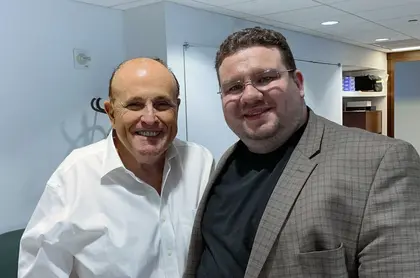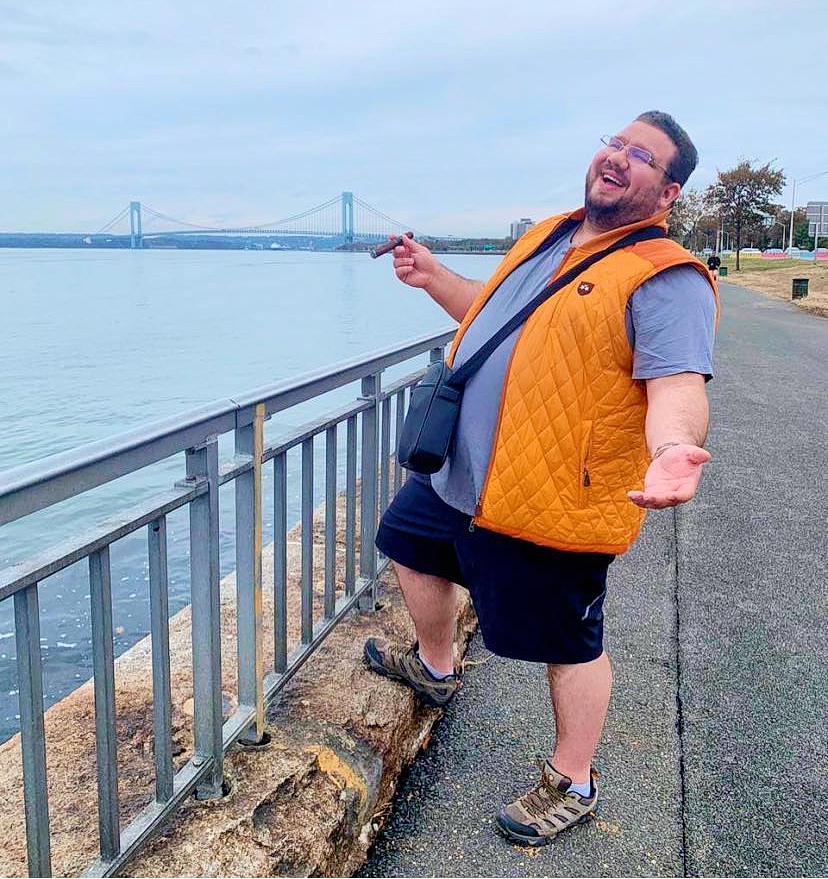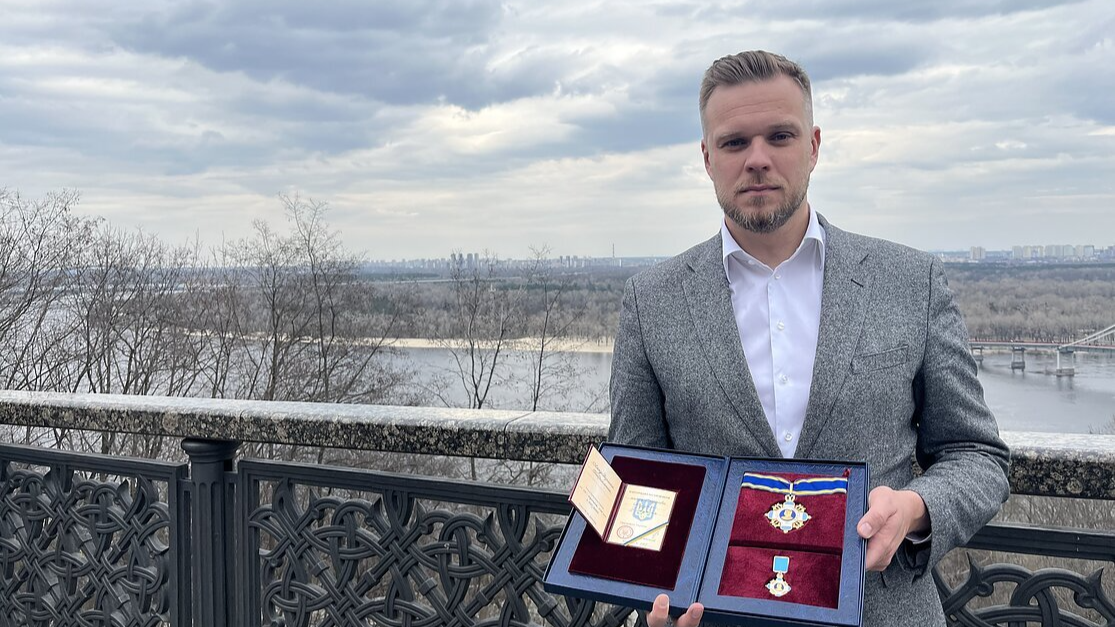To his supporters, Andrii Telizhenko is a whistleblower. To his opponents, he’s a charlatan.
But when he breezed into Kyiv on Dec. 4 in the company of Rudy Giuliani, U. S. President Donald Trump’s personal lawyer, one thing was clear: The 29-year-old former Ukrainian diplomat has played an outsized role in American politics.
JOIN US ON TELEGRAM
Follow our coverage of the war on the @Kyivpost_official.
He and Giuliani had arrived to take part in interviews for a documentary series by the right-wing One America News network. Its expressed aim is to undermine the impeachment inquiry against Trump.
- Obtain the most recent updates on the Ukraine situation today.
- Find the newest Ukraine news pieces that came out today.
Telizhenko’s latest appearance in the impeachment saga underlines his rise from obscure Ukrainian government official to media darling of the pro-Trump right.
In a January 2017 article by Politico, Telizhenko claimed that the Ukrainian Embassy in Washington, D.C., where he briefly worked in 2016, had colluded with the Democratic Party to undermine Trump’s campaign.
That claim became central to a narrative — largely unproven, partially debunked — that the country interfered in the 2016 U.S. presidential election. Since then, Telizhenko has also advanced unproven claims that ex-U.S. Vice President Joseph Biden had a Ukrainian prosecutor general fired to protect his son’s Ukrainian employer, Burisma Holdings.
While none of these charges have held up under scrutiny, they have taken on a life of their own in the right-wing media, where Telizhenko has frequently given interviews.
But individuals who worked with him in Ukraine paint a different picture of Telizhenko: a young man who came out of nowhere, sought personal enrichment and is hardly a reliable source for the claims he is making.
Canada, U.S. connections
Telizhenko doesn’t come from the political elite. But his fluent English and connections in the West also make it clear he isn’t salt of the earth.
Born in 1990, he spent part of his childhood in Ottawa, where his father served on the technical staff of the Ukrainian Embassy in Canada.
In 2007, he enrolled in the University of the District of Columbia, a public, historically black college in the U.S. capital, to study political science and journalism. He would later transfer to the University of Ottawa.
According to a resume he provided to the Kyiv Post, Telizhenko also had internships with the Ukrainian embassies in the U.S. and Canada and the U.S. international broadcaster Voice of America.
Telizhenko says that some of his political connections date back to this time. While he was studying in Washington, he says he became acquainted with the late Senator John McCain, a U.S. lawmaker known for his strong support of Ukraine.
But Telizhenko never graduated in the U.S. or Canada. Instead, he finished his studies and received a master’s degree at Ukrainian universities after receiving an offer to return home.
In 2010, he says he was invited to advise Yulia Tymoshenko’s Batkivshchyna party on international affairs and credits his DC connections with attracting the party’s attention.
It was hardly a perfect match. In a 2010 interview with a Ukrainian diaspora television show in Canada, Telizhenko said he had voted “against all” in that year’s presidential election, when Batkivshchyna’s Tymoshenko lost to pro-Russian candidate Viktor Yanukovych.
He said Tymoshenko had betrayed former President Viktor Yushchenko and criticized “hitches” in her party and its platform.
Work with Ukrainian politicians
Telizhenko arrived home on the cusp of a difficult period for Batkivshchyna. In 2011, Tymoshenko was imprisoned on politically motivated charges.
Telizhenko says that, while serving as a foreign relations advisor to the party, he was responsible for coordinating medical treatment for Tymoshenko from Canadian doctors.
In a comment to the Kyiv Post, Batkivshchyna’s spokesperson, Natalia Lysova, denied that Telizhenko has ever worked for the party or coordinated Tymoshenko’s treatment.
In 2012, the young party functionary worked on a series of parliamentary campaigns. All three of his candidates — Vitaliy Yarema, Dmytro Andriyevsky and Mykola Katerynchuk — would be elected as members of Batkivschyna.
Telizhenko would go on to work as an aide for Andriyevsky between 2012 and 2014. He left a positive impression on the lawmaker, who told the Kyiv Post that Telizhenko was a decent person but said he disagrees with the narrative about Ukraine his former adviser is now pushing.
Others were less impressed with Telizhenko. In 2010, after his return to Ukraine, he worked as a non-staff adviser to Volodymyr Ariev, then a lawmaker of Yushchenko’s Our Ukraine party. Ariev said a colleague from Batkivshchyna advised him to hire the young man with connections to the U.S.
According to Ariev, Telizhenko helped organize meetings in Washington with congressmen and political advisers, but he said he could not remember the specific people he met on that trip.
“I was not very satisfied with the level of meetings he organized for me,” Ariev said. “He was, at that time, talking more than doing.”
Ariev says he cut ties after Telizhenko asked for an urgent loan of $5,000 to pay for medical treatment for his father and then failed to return the money. Ariev characterized Telizhenko as a “crook.”
Telizhenko denied ever taking any loans from Ariev.
EuroMaidan boost
Telizhenko’s career took off after the 2014 EuroMaidan Revolution, which overthrew Kremlin-backed Yanukovych. During the revolution, the young political operative took the side of the protesters.
This was hardly an alliance of convenience. In his 2010 TV interview, Telizhenko had expressed support for Ukraine’s efforts to move closer to Europe and also criticized Yanukovych.
During EuroMaidan, Telizhenko says he was the international coordinator for opposition leaders Arseniy Yatsenyuk, Oleh Tyahnybok and Vitali Klitschko and arranged briefings for foreign ambassadors, cooperation with the State Department and U.S. embassy and visits by figures like U. S. Assistant Secretary of State Victoria Nuland, McCain and Russian opposition leader Ilya Yashin.
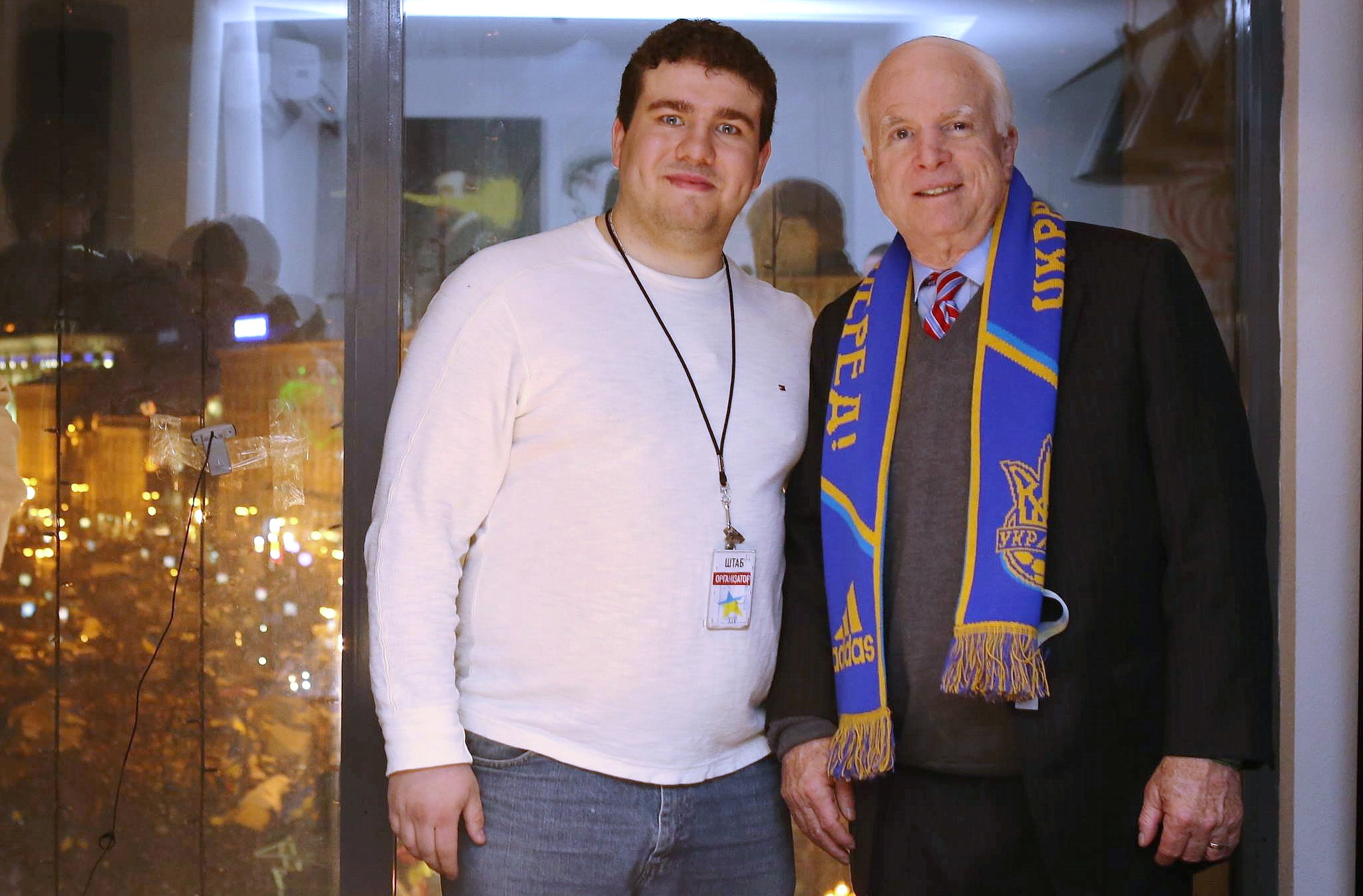
Oleksiy Grytsenko, a leader of AutoMaidan, a civic and political movement that participated in the EuroMaidan, said Telizhenko indeed used his political contacts to help the leaders of the street protests to meet with the embassies of the U.S., Austria and France.
At the time, Telizhenko was devoting all his time to the protest movement and Andriyevsky had stopped paying him, Grytsenko said. As a result, he gave Telizhenko Hr 15,000 (roughly $1,800 at the time) to cover living expenses.
After the revolution ousted Yanukovych, Telizhenko received an important post: He became a senior assistant to newly-appointed Deputy Prime Minister Vitaly Yarema, whose parliamentary campaign he had worked on. When Yarema became prosecutor general in June 2014, Telizhenko became his foreign affairs assistant there.
Grytsenko says that during that time, Telizhenko once asked a businessman for a $5,000 bribe to organize a meeting with Yarema for him. That meeting never happened. During his conversation with the Kyiv Post, Grystenko called up the businessman in question, who confirmed his narrative. However, the businessman did not respond to a Kyiv Post request for comment.
“Telizhenko is definitely a person working for money. He’s not a decent one,” Grytsenko said. “I wouldn’t trust him.”
Telizhenko denied ever asking for or taking bribes.
“I went through Maidan. I had three people dying in my hands on Maidan,” he said. “For me, people who are involved in bribery after Maidan — it’s the biggest crime they can do.”
Ukrainian Embassy
When Yarema was replaced by Viktor Shokin as prosecutor general, Telizhenko continued working as an adviser on foreign relations and chief of protocol.
Recently, Shokin has taken center stage in the impeachment inquiry in the United States after Giuliani alleged that Biden had Shokin fired to prevent the prosecutor general from investigating Burisma, a company were his son served on the board of directors at the time. Telizhenko has supported this narrative.
Biden indeed demanded Shokin’s firing in 2016. But rather than nepotism, it was for the simple reason that the prosecutor general failed to prosecute corruption. Many Ukrainian politicians, civil society actors and international partners had long demanded Shokin’s ouster for the same reason.
According to Telizhenko, on the other hand, Shokin was a professional prosecutor but totally non-political. For this reason, he says he resigned three months later because there was no use for his work as a political adviser in the Prosecutor General’s Office.
But a Kyiv Post source and media reports claim that rather than resigning, Telizhenko was pressured to leave the job after causing a traffic accident. In April 2015, his Nissan Infiniti hit four cars, injuring two women. Telizhenko says the collision occurred because he lost consciousness due to a medical condition and insists that he resigned from the Prosecutor General’s Office two weeks prior to the accident.
In December 2015, Telizhenko says he was invited by then-Ambassador Valery Chaly to move to Washington D. C. to start a job at the Ukrainian Embassy as a third secretary, the lowest diplomatic rank.
However, according to a knowledgeable Kyiv Post source who declined to be identified due to the highly politicized nature of the Trump impeachment scandal, Telizhenko received his job thanks to lobbying by Yarema.
Telizhenko’s work at the embassy included protocol issues and monitoring Republican candidates in the 2016 elections — but not Trump. He sometimes surprised his colleagues by drinking expensive whiskey and smoking cigars in the embassy’s backyard.
Telizhenko says that during this time he met Victoria Toensing, a lawyer who today has close ties to Trump. She would later introduce him to Giuliani, he told the Kyiv Post.
According to a November 2019 story by Buzzfeed, Telizhenko said he came under pressure to resign from the embassy after giving the interview to Politico. But that narrative seems improbable.
Telizhenko told the Kyiv Post that, after he left the embassy in May 2016, he spent one more month working at the Ministry of Foreign Affairs in Kyiv.
The Politico article was published in January 2017, and Telizhenko told the Kyiv Post that the new site’s journalists had approached him a month earlier.
A Kyiv Post source indicates that, in reality, Telizhenko abruptly left the embassy for family reasons.
Loose cannon?
Telizhenko’s claims to Politico were indeed explosive. He accused then-Ambassador Chaly of supporting the Clinton campaign and said one of the embassy’s top staffers ordered him to meet with Ukrainian-American Alexandra Chalupa, a Democratic Party operative, in spring 2016 and to help her dig up dirt on Trump’s then-campaign manager Paul Manafort, who had previously worked as a consultant for Yanukovych’s now defunct Party of Regions.
Ukraine’s embassy has denied that its members supported either side in 2016.
Telizhenko says turning to Politico wasn’t his first choice. Rather, he claims he tried to use diplomatic channels to warn Ukrainian President Petro Poroshenko about the embassy’s work, hoping the president would oust Chaly for a lack of professionalism. Instead, he says Poroshenko targeted him.
In October 2017, Telizhenko says he left for Canada and attempted to seek political asylum there, fearing for the safety of his family. He claims that Yarema also came under pressure for his ties to him. Yarema wasn’t available for comment.
Telizhenko returned to Ukraine in 2018 after getting assurances from contacts in the government that he would be safe, he told the Kyiv Post. Now, his wife and child live in Ukraine while he splits his time between Kyiv and Washington.
But he insists that he continues to speak out to guarantee his safety and that of his family.
Patriotism or publicity?
Telizhenko calls himself a “patriot of Ukraine,” and his biography suggests he has long favored the country’s path to the West.
But the narrative he is pushing along with some of his political connections have led many to conclude his work helps Russia, which has been waging war against Ukraine for over five years.
Telizhenko outright denies that.
“I don’t work with pro-Russian, pro-Kremlin, pro-Putin people,” he said.
Still, he has given multiple interviews to pro-Russian outlets, such as the 112 and News One television channels controlled by oligarch Viktor Medvedchuk, who maintains close ties with Russian President Vladimir Putin.
He says he is open to talk to any media — except Russian outlets.
“I told the truth from the beginning,” he said. “I don’t like that Russia is using my interviews in its news.”
He says that if only Poroshenko had heeded his warning about Chaly, all this could have been avoided.
Business and media
While in Canada in 2017, Telizhenko registered his consulting firm, called Golden Lion Strategies.
Since then, he has done consulting work for Ukrainian-Russian businessman Pavel Fuks and the businessman and former Ukrainian lawmaker Andrey Artemenko. He says both Fuks and Artemenko are his friends and denies that they are pro-Russian.
Both men’s biographies raise questions. Fuks is well-known for his failed attempts to build a Trump Tower in Moscow, and Artemenko’s story is even more bizarre.
In January 2017, he met with two Trump advisers and delivered a “peace plan” for Ukraine widely deemed to favor Russia. The plan suggested lifting sanctions on Russia after giving it Crimea in a long-term lease — an arrangement that is exceedingly unpalatable for Kyiv. In Ukraine, many believed the Kremlin was behind the plan.
As a result of this backroom diplomacy, the Prosecutor General’s Office opened a case against Artemenko for treason. He was found to have multiple citizenships, which is banned in Ukraine, and was stripped of his Ukrainian citizenship and his parliamentary mandate as a result.
Media blitz
In late November 2019, Telizhenko appeared on One America News alongside Artemenko and Guiliani. Artemenko also accompanied Telizhenko and Giuliani to Kyiv on Dec. 4.
While Telizhenko has given interviews to several American media outlets, few of them enjoy broad respect in the United States. Three — the Gateway Pundit, InfoWars and commentator Glenn Beck’s Youtube show — are known for peddling right-wing conspiracy theories or outright hoaxes.
One America News is mainstream by comparison. And the platform appears more than ready to team up with Telizhenko in support of Trump.
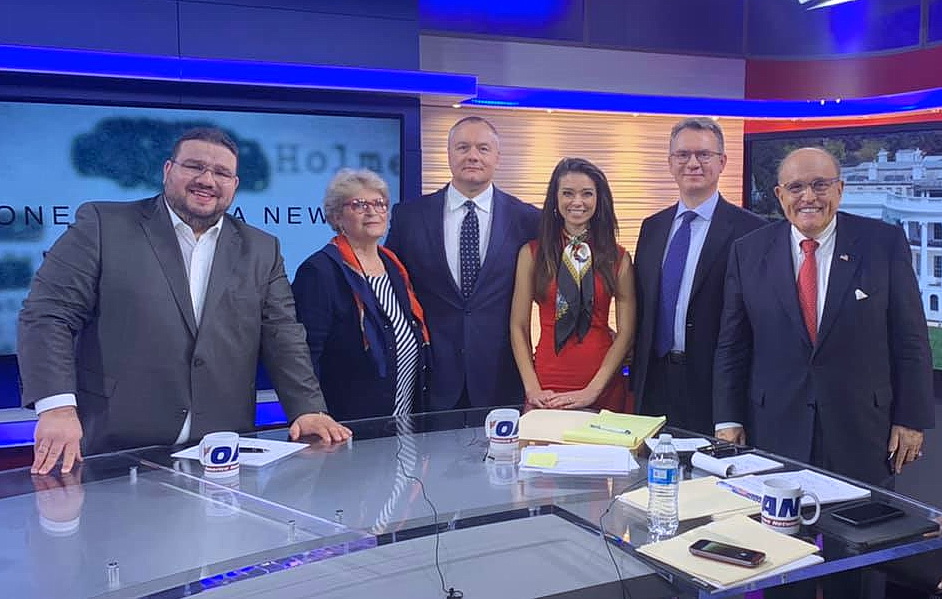
Telizhenko says that he is telling the truth and that he cares a lot for his reputation, something he can’t afford to risk in political consultancy.
“If I would be an unprofessional person working in this sphere, I would not have the contacts of the people I work with today,” he said.
But people who knew Telizhenko before his rise to right-wing media fame say he actually has little in the way of a reputation.
Borys Tarasiuk, who twice served as Ukraine’s foreign minister, says he first met Telizhenko while leading the EuroMaidan’s international outreach. He says that Telizhenko served more as a translator during EuroMaidan and he was not impressed with the young Ukrainian’s work.
When Telizhenko started working at the foreign ministry, Tarasiuk was shocked, he told the Kyiv Post.
“I don’t think that this person deserves much attention,” Tarasiuk said. “He’s a crook.”
You can also highlight the text and press Ctrl + Enter


